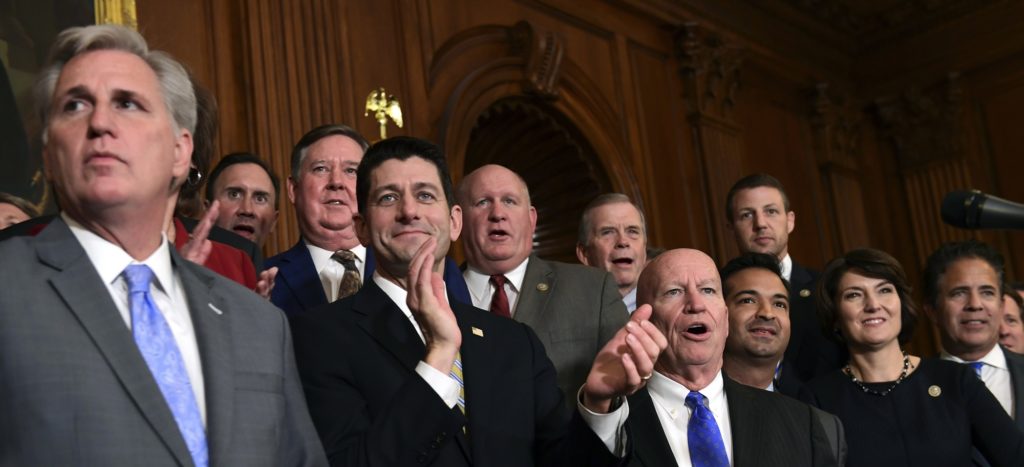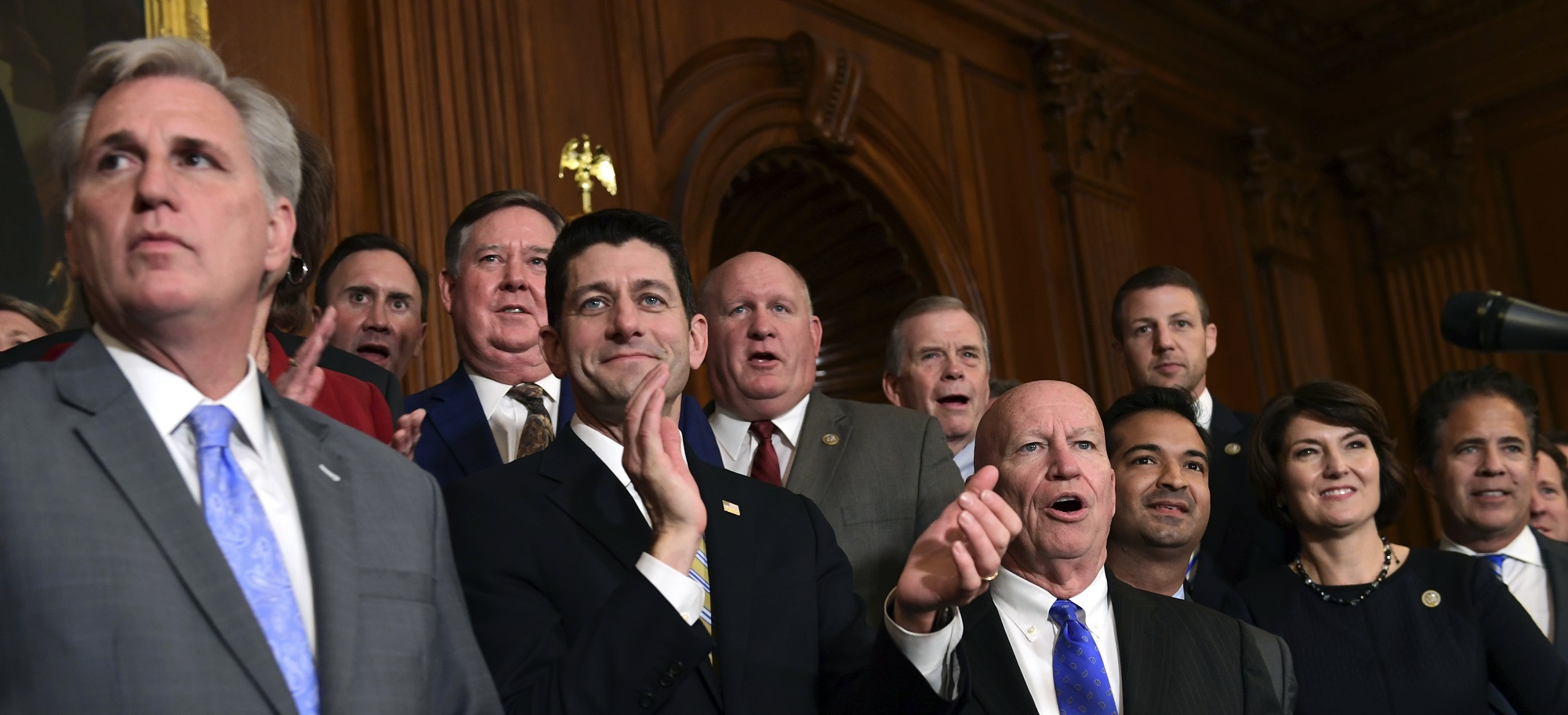
Republicans rammed a $1.5 trillion overhaul of business and personal income taxes through the House Thursday, edging toward the code’s biggest rewrite in three decades and the first major legislative triumph for President Donald Trump and the GOP after 10 bumpy months of controlling government.
The mostly party line 227-205 vote masked more ominous problems in the Senate. There, a similar package received a politically awkward verdict from nonpartisan congressional analysts showing it would eventually produce higher taxes for low- and middle-income earners but deep reductions for those better off. Those projections came a day after Wisconsin Sen. Ron Johnson became the first GOP senator to state opposition to the measure, saying it didn’t cut levies enough for millions of partnerships and corporations. With at least five other Republican senators yet to declare support, the bill’s fate is far from certain in a chamber the GOP controls by just 52-48. Even so, Republicans are hoping to send a compromise bill for Trump to sign by Christmas.
“Now is the time to deliver,” the White House said in a written statement that underscored the party’s effort to maintain momentum and outrace critics.Those include the AARP lobby for older people, major medical organizations, Realtors — and, in all likelihood, every Senate Democrat. With this summer’s crash of the GOP effort to dismantle President Barack Obama’s health care law, Republicans see a successful tax effort as the best way to avert major losses in next year’s congressional elections. House Republicans conceded they are watching the Senate warily.
“Political survival depends on us doing this,” said Rep. Kevin Cramer (R-ND) “One of the things that scares me a little bit is that they’re going to screw up the bill to the point we can’t pass it.”
The House plan and a comparable proposal Republicans hoped to push through the Senate Finance Committee by week’s end would deliver the bulk of their tax reductions to businesses. Each would cut the 35 percent corporate tax rate to 20 percent, while reducing personal rates for many taxpayers and erasing or shrinking deductions. Projected federal deficits would grow by $1.5 trillion over 10 years. As decades of Republicans have done before them, GOP lawmakers touted their tax cuts as a boon to families across all income lines and a boost for businesses and the entire country.



